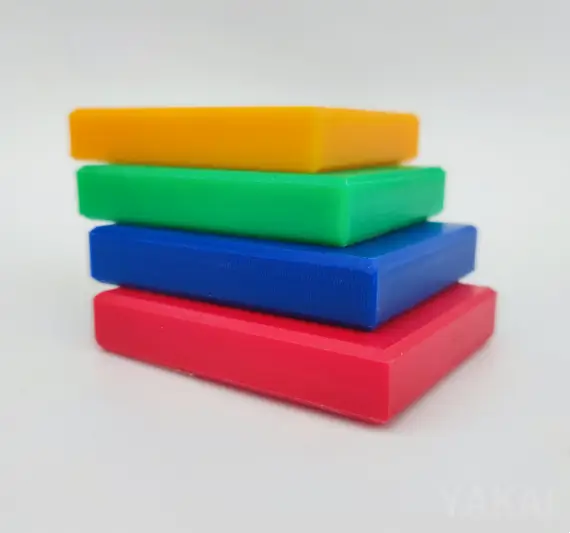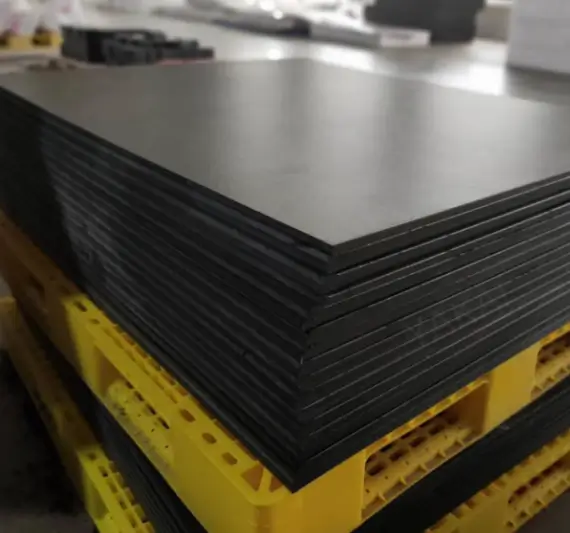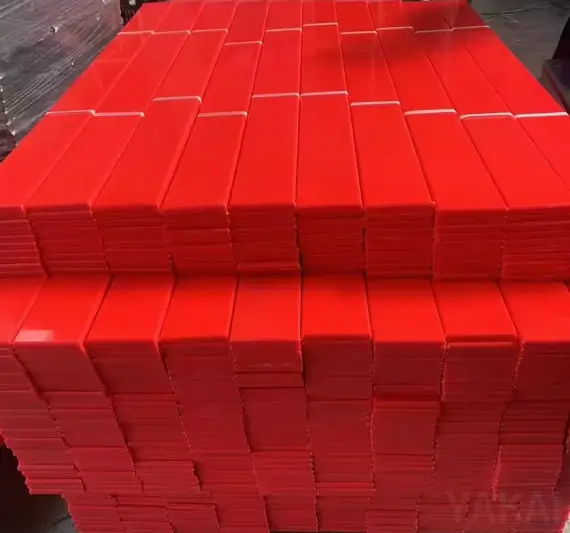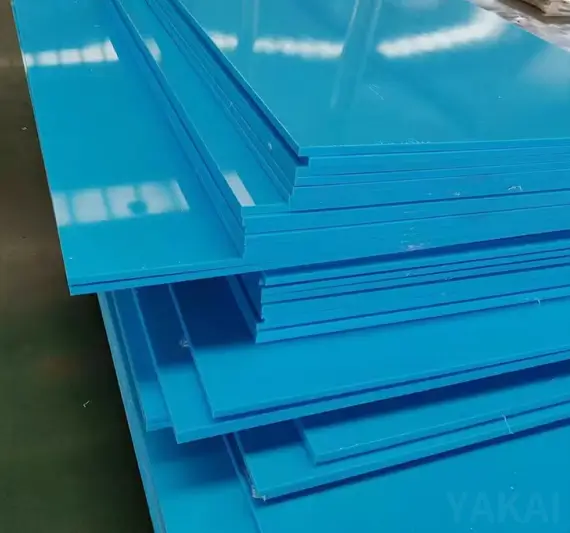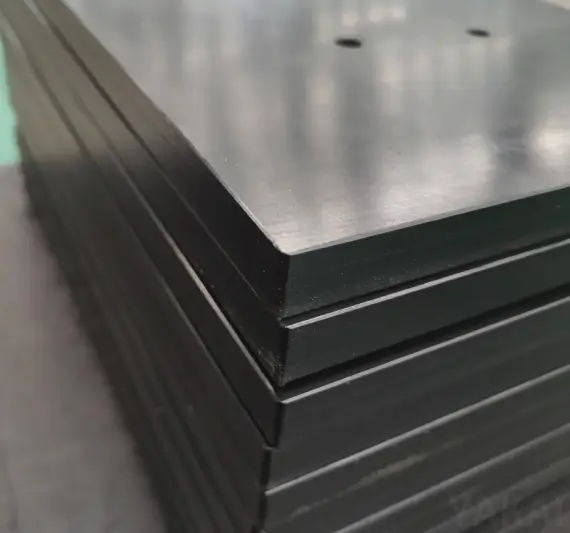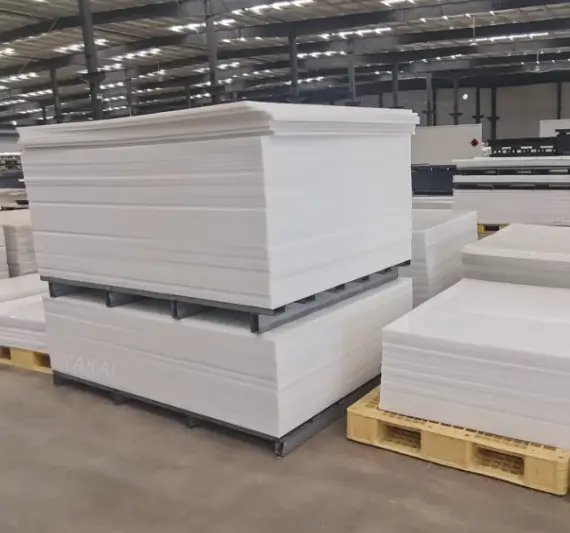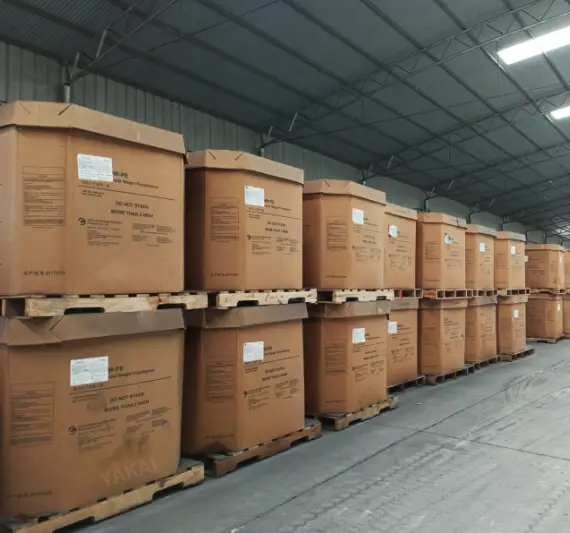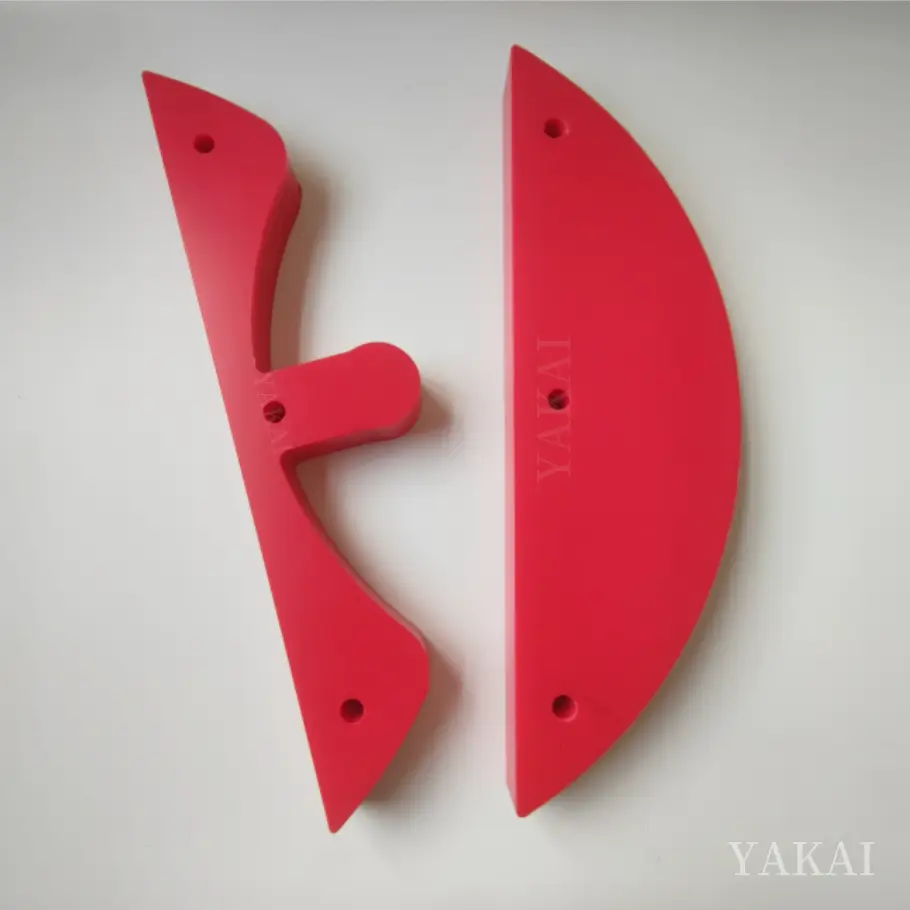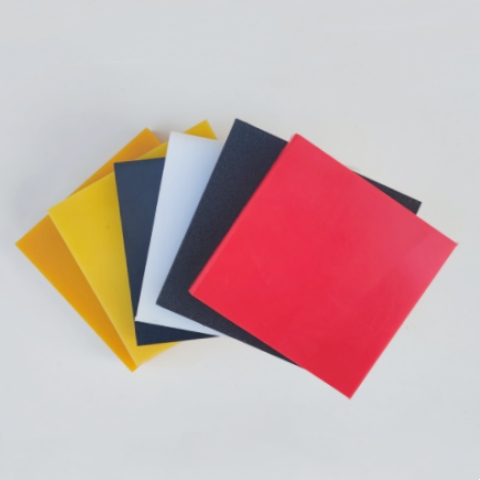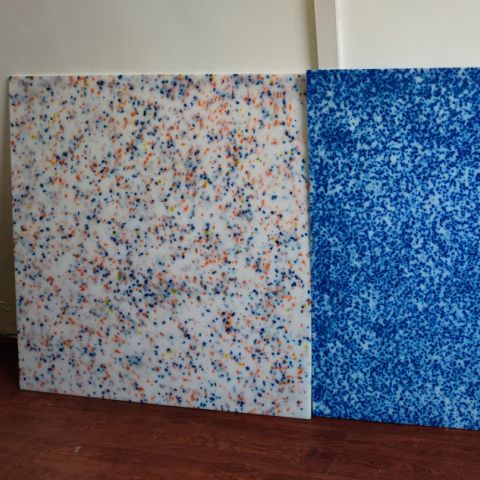UHMWPE Sheet
High-Performance UHMW Sheets
UHMWPE Sheet (Ultra High Molecular Weight Polyethylene sheet) — super strong, impact-resistant, and works from -269°C to 80°C.
Get direct supply factory, Choose your custom sizes
UHMWPE Sheet is a high-grade engineering plastic, also known as PE1000, UPE Sheets or Superlining. YAKAI UHMWPE Sheet has exceptional strength, very high impact resistance, excellent wear resistance, and ultra-low friction, making it perfect for heavy-duty industrial use and commercial applications.
Why Choose Us
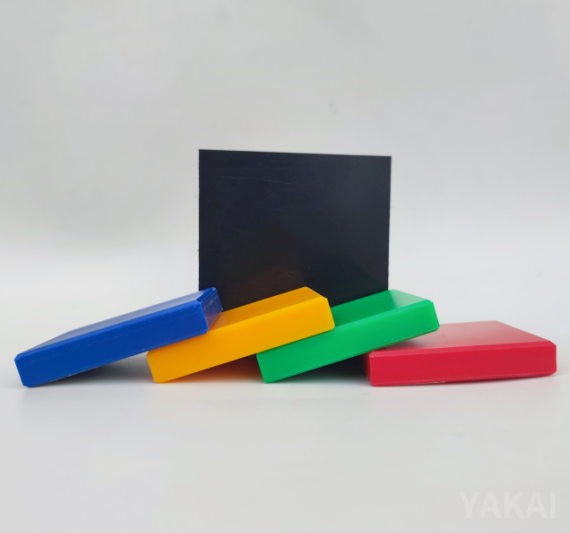
Custom Coloures Available
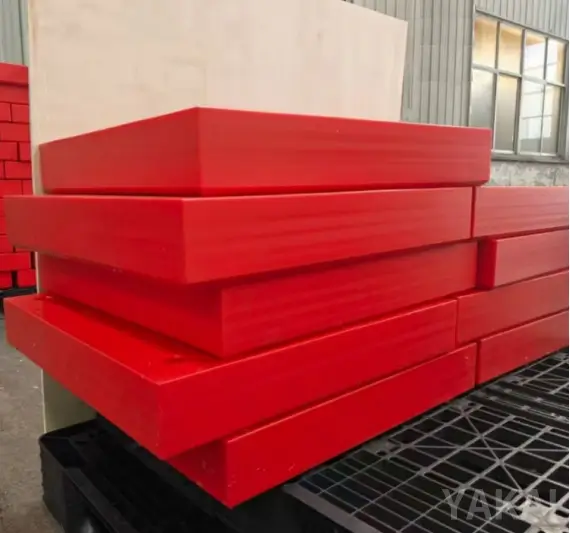
Custom Size Available
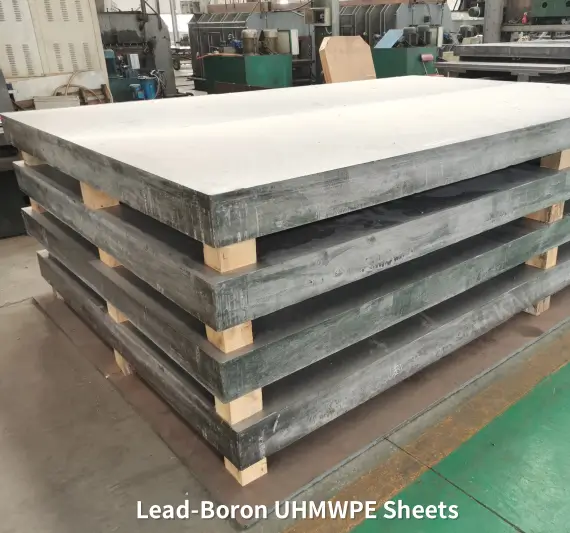
Specialty UHMWPE Sheets
UHMWPE Sheet Applications
YAKAI UHMWPE Sheets are food-safe, low-friction, and durable — ideal for:
- Hopper, chute, and silo linings to prevent sticking
- Wear strips and conveyor linersfor smooth material handling
- Dock fenders and marine bumpers for impact protection
- Food and beverage processing machine parts (rollers, guides, bushings)
- Chopping boards and Work surfaces in kitchens or processing plants
- Machine parts like gears, rollers, and bushings
- Protective panels and impact-resistant barriers
- Outrigger Pads
YAKAI UHMWPE Sheet Key Advantages
- Exceptional Wear Resistance
- Doesn’t absorb water
- Low coefficient of friction
- High Impact Strength
- Resists corrosive chemicals
- Hygienic & Non-Toxic
Technical Data
| Test items | Testing base | Unit | Test results |
|---|---|---|---|
| Tensile strength | GB/T 1040.2/1B-2006 | MPa | 32.52 |
| Elongation at break | GB/T 1040.2/1B-2006 | % | 296.6 |
| Tensile modulus | GB/T1040.2/1B-2006 | MPa | 1102.74 |
| Bending strength | GB/T 9341-2008 | MPa | 78.73 |
| Bending elastic modulus | GB/T 9341-2008 | MPa | 7604.57 |
| Compressive strength | GB/T 1041-2008 | MPa | 179.55 |
| Impact strength (notch) | GB/T 1043.1/1eA-2008 | kJ/m2 | 146 |
| Heat distortion temperature (1.8MPa) | GB/T 1634.2-2004 | ℃ | 85 |
| Ball indentation hardness | GB/T 3398.1-2008 | N/mm2 | 65 |
| Linear expansion coefficient | TMA:Heated from 0℃ to 50°C at a speed of 5C/min under nitrogen atmosphere (50mL/min). | ℃-1(X10-5) | 2 |
| Ww | GB/T 3960-2016 | mg | 2 |
| Dynamic friction coefficient | GB/T 10006-1988 | / | 0.13 |
| Guide surface roughness | laboratory methods | um | 1.5 |
UHMWPE Sheet – Delivery & Customer Service
Worldwide Delivery: We ship to Australia, USA, UK, France, Germany, South Africa, New Zealand, Singapore, South Korea, Japan, Thailand and more
Flexible Order Quantity: From sample sheets to bulk supply
Customer Cases
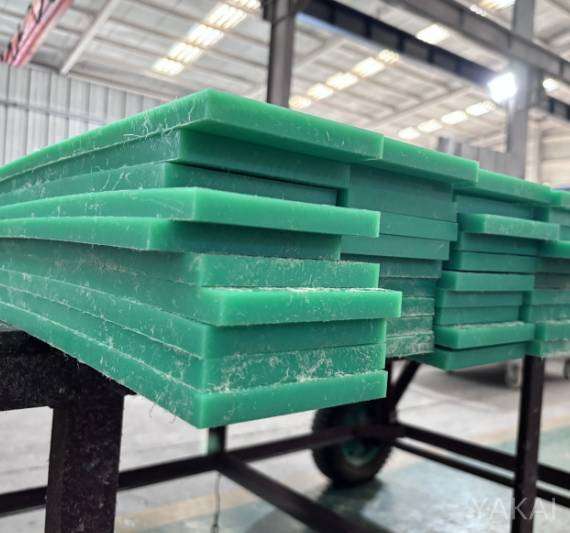
Australia – Custom-Cut Sheets
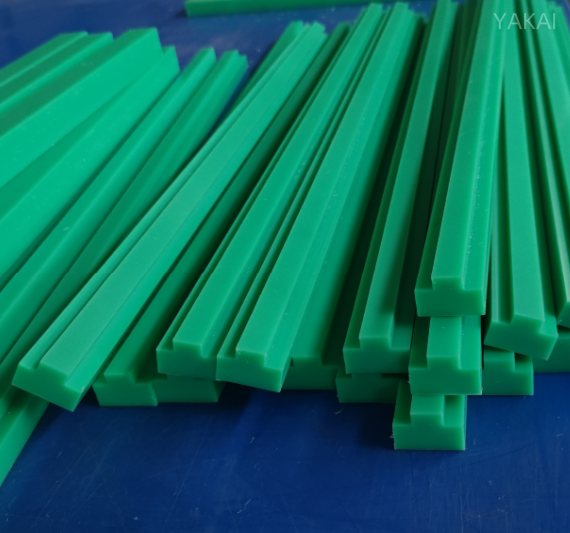
United Kingdom – Guide Rails
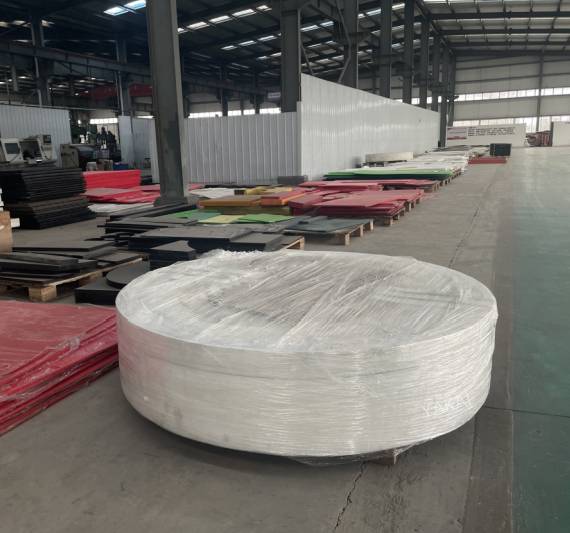
France – Giant Round Thick Sheets
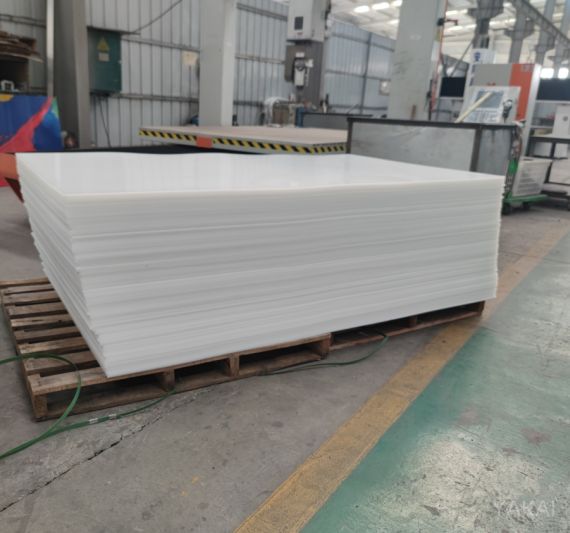
United States – White Sheets
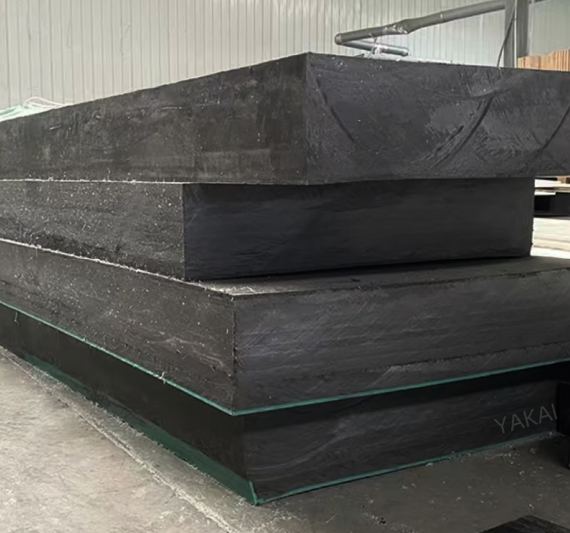
Australia – 100 mm Thick Sheets
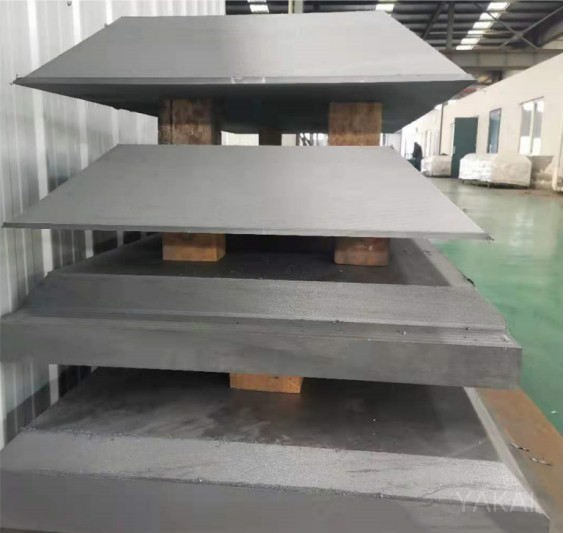
Nuclear Power Project – Lead Boron Sheets
What Our Clients Say
This is my second order with this supplier and I keep on being surprised in exceptionally good way. Very reliable manufacturer. I am moving all my production to this manufacturer.
Sergey S., Australia
The service is exceptional, always ensuring quality and timely delivery. Highly recommended!
James L., United States
Super quailty made to last.
highly recommend and nothing to worry about with this company!
Sophie D., France
FAQ
Can I order custom sizes and colours?
Yes, we provide cut-to-size UHMWPE sheets and multiple colour options (White, Black, Green, Blue, Yellow,etc).
What are the types of UHMWPE Sheets?
UHMWPE sheets come in various types based on different application needs and additive compositions. Below are the common types:
1. Virgin Grade UHMWPE Sheet
Made from 100% pure resin without additives or fillers.
Features: Self-lubricating, wear-resistant, impact-resistant, high chemical stability
Applications: Conveyor slide plates, baffles, spacers, etc.
2. UV-Resistant UHMWPE Sheet
Contains UV stabilizers for enhanced outdoor weather resistance.
Features: Excellent aging resistance under sunlight exposure
Applications: Outdoor equipment, dock fenders, etc.
3. Anti-static UHMWPE Sheet
Added conductive carbon or anti-static agents.
Features: Low surface resistance to prevent static buildup
Applications: Liners in coal mines, flour mills, and explosive dust environments
4. Boron-containing UHMWPE Sheets
Added boron compounds.
Features: These sheets offer exceptional neutron shielding capabilities while maintaining the core advantages of UHMWPE, such as high impact resistance, chemical stability, and low friction.
Applications:
Nuclear Industry, Scientific Research & Laboratories, Medical Field, Military & Aerospace, Neutron protective armor, Shielding components for radioactive equipment
5. Lead-Boron UHMWPE Sheets
Based on boron-filled UHMWPE, with added lead or lead powder
Features: Dual shielding for neutrons and gamma radiation. More expensive and slightly harder to process due to lead content.
Applications:
Radiation Therapy & Medical Use, Nuclear Power Plants & Facilities, Radioactive Waste Storage & Transport, High-Energy Physics & Research Equipment.
Additional Notes:
Boron-filled sheets are ideal for thermal neutron shielding.
Lead-Boron sheets are suitable for combined neutron and gamma radiation shielding, especially in high-energy environments.
Customization is available based on required shielding types, thickness, density, and boron/lead content.
What is the difference between UHMWPE Sheet and HDPE Sheet?
UHMWPE (ultra-high molecular weight polyethylene) and HDPE (high-density polyethylene) are both members of the polyethylene (PE) family, but their properties and applications are significantly different. Here are the main differences between them:
1. Molecular weight
UHMWPE: ultra-high molecular weight (usually above 3 million), with extremely long chains.
HDPE: high molecular weight (about 200,000 to 500,000), much lower than UHMWPE.
2. Wear resistance
UHMWPE: extremely strong wear resistance, the most wear-resistant of all thermoplastics.
HDPE: good wear resistance, but far less than UHMWPE.
3. Friction coefficient
UHMWPE: extremely low friction coefficient, very suitable for sliding parts (such as conveyor rails, sliders, etc.).
HDPE: also has a lower friction coefficient, but not as good as UHMWPE.
4. Strength and toughness
UHMWPE: Very good toughness, extremely strong impact resistance, almost no shattering.
HDPE: Good strength and toughness, but may break under extreme impact.
5. Cost
UHMWPE: Relatively high cost, especially difficult to process.
HDPE: Low cost, easier to process, cost-effective.
To sum up:
UHMWPE is a material with stronger performance, longer life, but higher cost, suitable for high-end, wear-resistant, and impact-resistant environments; while HDPE is a general material with high cost-effectiveness and wide application.
If you are choosing materials based on specific usage requirements, you can also tell me your application scenario and I can recommend a more suitable one to you.
Does UHMWPE Sheet have other names or abbreviations?
UHMWPE Sheets are widely recognized under several other names or abbreviations, including: UHMW Sheets – A common shortened form of the full name; UPE Sheets – Often used in Asian and European markets; PE1000 Sheets – A technical classification in industrial plastics; High-Performance Polyethylene Sheets; Wear-Resistant Polyethylene Sheets.
Although these terms may vary, they typically refer to the same high-performance material. However, material grades can differ, so verifying specifications when ordering is important.
For manufacturing wear-resistant parts, is it better to choose UHMWPE Sheet or HDPE Sheet?
UHMWPE Sheet is better for the following reasons:
– Stronger wear resistance: UHMWPE has the highest wear resistance among plastics, far exceeding HDPE, and is suitable for high-friction scenarios.
– Excellent impact resistance: It can withstand high-frequency impact, is not easy to break, and prolongs the life of parts.
– Good self-lubrication: Low friction coefficient, reduces wear and energy consumption, and is suitable for moving parts.
Advantages of HDPE: high hardness and low processing cost, but insufficient wear and impact resistance, only suitable for low-load and low-friction scenarios.
Conclusion: UHMWPE is preferred for wear-resistant parts, unless the budget is extremely low and the wear resistance requirement is not high.
Is UHMWPE Safe for food applications?
Yes, UHMWPE (Ultra High Molecular Weight Polyethylene) is generally safe for food applications, and it’s widely used in the food processing industry for several reasons:
- FDA & EU Compliant: UHMWPE grades formulated for food applications meet the FDA and EU food contact regulations.
- Non-toxic and odorless: It doesn’t leach harmful chemicals, making it safe for contact with food.
- Low moisture absorption: Prevents bacterial growth and contamination.
- Excellent wear resistance: Ideal for cutting boards, conveyor systems, and wear strips in food production lines.
- Easy to clean and sanitize: Smooth surface resists sticking and is hygienic.
Typical Food-Grade UHMWPE Uses:
- Conveyor guides and star wheels
- Food cutting boards
- Packaging machinery parts
- Sliding surfaces in meat or dairy processing
Just make sure the specific grade of UHMWPE you’re using is certified for food contact, as some industrial grades may contain additives not suitable for food use.
👉 Just make sure the specific grade of UHMWPE you’re using is certified for food contact (e.g., listed in the FDA Inventory of Food Contact Substances), as some industrial grades may contain additives not suitable for food use.
If you want to choose a food-grade UHMWPE product or supplier, please contact us.
What is the application of UHMWPE sheet in nuclear power plants?
UHMWPE (Ultra-High Molecular Weight Polyethylene) sheets are widely used in the nuclear power industry due to their outstanding physical and chemical properties. Below are the key applications and advantages of UHMWPE sheets in nuclear power plants:
1. Radiation Shielding Panels
By incorporating boron (B) into UHMWPE, borated polyethylene sheets can be produced for effective neutron radiation shielding. These are commonly used in nuclear reactors, radioactive waste storage facilities, and particle accelerators.
Advantages:
Boron content effectively absorbs thermal neutrons, enhancing shielding performance
Lighter and non-toxic alternative to lead; easier to handle and install
Excellent corrosion resistance, suitable for complex nuclear environments
2. Wear-Resistant Liners for Transport Systems
In systems involving fuel component handling, waste transfer, or cooling water channels, UHMWPE is used for chutes and hoppers to reduce friction and wear.
Advantages:
Ultra-low friction coefficient, anti-stick, and anti-blocking
Exceptional abrasion resistance, extending equipment lifespan
Extremely low water absorption—won’t deform due to humidity
3. Industrial Safety Panels
Used in nuclear facilities as protective barriers, bump guards, and personnel guidance boards to prevent accidental contact with precision equipment.
Thanks to its unique blend of wear resistance, chemical stability, radiation shielding, and strength-to-weight ratio, UHMWPE sheets are becoming an essential material in the safe and efficient operation of nuclear power facilities. Especially in radiation shielding and equipment protection, UHMWPE is replacing traditional materials to improve overall system reliability and maintenance efficiency.
What’s the Difference Between Polyethylene PE-HMWPE (PE 500) and PE-HMWPE (PE 1000)?
PE 500: Known as High Molecular Weight Polyethylene (HMW-PE), with an average molecular weight of around 500,000.
PE 1000: Known as Ultra High Molecular Weight Polyethylene (UHMW-PE), with a molecular weight of over 1,000,000, and can reach up to 5 million or more.
Comparison Table
| Property | PE 500 (HMW-PE) | PE 1000 (UHMW-PE) |
|---|---|---|
| Molecular Weight | ~500,000 | >1,000,000 (up to 5 million+) |
| Wear Resistance | Good – suitable for moderate wear | Excellent – 3 to 6 times more wear-resistant than PE 500 |
| Impact Strength | High | Extremely high, even at sub-zero temperatures |
| Coefficient of Friction | Low | Very low – superior sliding performance |
| Chemical Resistance | Excellent | Excellent – handles a wide range of corrosive substances |
| Machinability | Easier to machine; suitable for standard parts | More difficult to machine, but ideal for precision components |
| Service Life | Long | Longer – requires less maintenance |
| Cost | Relatively lower | Higher – ideal for demanding applications |
Typical Applications:
PE 500 (HMW-PE):
- Food-grade cutting boards
- Conveyor system wear strips and bumpers
- Mechanical sliding components
- Cost-effective parts in moderate wear conditions
PE 1000 (UHMW-PE):
- High-wear environments such as chutes, coal bunkers, and liners
- Dock fenders, marine protection panels
- Ice rink boards, ski slope base layers
- Mining, chemical, and heavy-duty industrial components
Summary Recommendation:
If you need higher wear resistance and impact strength, and the budget allows, PE 1000 is the better choice for long-term durability in demanding environments.
If your application involves moderate wear, lighter loads, or cost-sensitive use, PE 500 is already a reliable and economical option.

